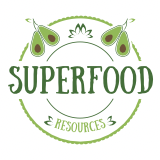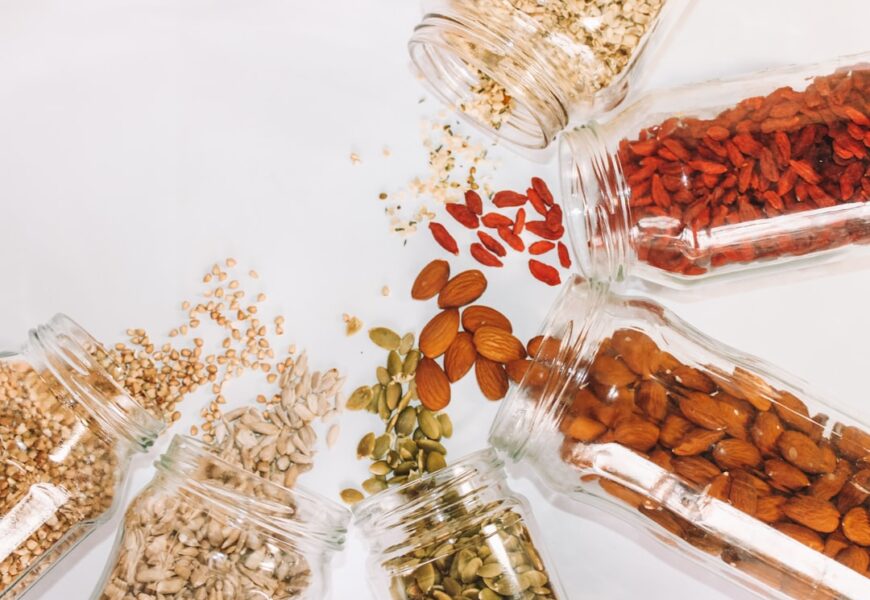The Ultimate Guide to Superfoods: What are they and how can they benefit your health?
Introduction
Welcome to the wonderful world of superfoods! You’ve probably heard the term tossed around in health circles, on blogs, or even at your local grocery store. But what exactly are superfoods? Simply put, they’re foods—mostly plant-based but also some fish and dairy—packed with nutrients that can positively impact your health. From exotic berries to everyday greens, these powerhouses contain vitamins, minerals, and antioxidants that help your body thrive. In this guide, we’ll dive deep into the world of superfoods, exploring their varieties and the amazing ways they can enhance your well-being. Get ready to transform your diet and boost your health with some of the most nutrient-dense foods the earth has to offer!
What are Superfoods?

Definition and characteristics
Superfoods, though not a scientific term, broadly refer to nutrient-rich foods considered especially beneficial for health and well-being. What sets these foods apart is their high density of vitamins, minerals, antioxidants, fibers, and fatty acids. The term often implies that the food offers substantial health benefits, such in helping prevent diseases, improving physical and mental health, or supporting efficient and enhanced body function. Typically, superfoods are natural and minimally processed before they reach your plate, retaining most of their nutritious benefits.
Examples of popular superfoods
Among the vast array of foods that are considered super, some stand out for their exceptional health properties. For example, blueberries are famed for their high antioxidant levels that fight free radicals and support overall health. Kale, a robust leafy green, is packed with vitamins A, K, and C, along with fiber and iron, making it a powerhouse for nutritional benefits. Other popular superfoods include salmon, which is rich in Omega-3 fatty acids crucial for brain and heart health; avocados, which are full of healthy fats and vitamins; and quinoa, known for its high protein content and full spectrum of amino acids. Almonds, with their high levels of vitamin E, are also on this list, alongside the versatile and fiber-rich sweet potato.
Health Benefits of Superfoods
Boosting energy levels
Incorporating superfoods into your diet can significantly impact your energy levels. Foods like bananas and oats are excellent for this purpose, offering a healthy blend of carbohydrates, fiber, and natural sugars that help maintain steady energy release throughout the day. They are ideal for breakfast or a pre-workout snack because they help prevent the midday slump many people experience. The complex carbohydrates and essential nutrients found in these foods support sustained energy, which is vital for both daily tasks and physical activities.
Improving immune function
The immune system benefits greatly from certain superfoods that provide the necessary tools to fight off infections and diseases. Citrus fruits, such as oranges and grapefruits, are loaded with vitamin C, a well-known immune system booster. Similarly, broccoli and spinach are rich in both vitamins A and C, along with numerous other antioxidants that enhance the immune system’s function. Garlic, a powerful superfood, contains allicin, which is known for its antimicrobial and anti-inflammatory properties. By regularly including these foods in your diet, you can support your body’s defenses and improve your overall health resilience.
Enhancing cognitive function
Superfoods can also have a profound effect on brain health and cognitive function. Walnuts, for instance, are high in DHA, a type of Omega-3 fatty acid that has been shown to improve cognitive performance. They are often called the ultimate brain food for this reason. Similarly, berries like strawberries, blueberries, and blackberries contribute not only to brain health but also to memory maintenance and focus due to their high levels of antioxidants and flavonoids. Adding these foods to your daily routine can contribute to long-term brain health and cognitive abilities that remain sharper as you age.
Incorporating Superfoods into Your Diet
Understanding the diverse range of superfoods can be overwhelming, but incorporating these nutrient powerhouses into your daily meals doesn’t have to be a chore. With a bit of creativity and some simple techniques, you can boost your diet with these health-enhancing foods seamlessly and deliciously.
Tips for adding superfoods to your meals
Introducing superfoods into your eating routine is all about making small, sustainable changes. Here are some easy tips:
– Start your day by sprinkling chia seeds or ground flaxseeds on your breakfast cereal, yogurt, or smoothie.
– Swap out your usual greens for darker, more nutrient-rich varieties like kale or spinach in salads and sandwiches.
– Use quinoa or amaranth instead of rice for a protein and fiber boost.
– Snack on nuts like almonds or walnuts, and seeds such as pumpkin or sunflower seeds, which are packed with healthy fats and proteins.
– Integrate more berries into your diet, in yogurt, salads, or just as a snack, to take advantage of their antioxidant properties.
By making these tiny adjustments to your regular meals, you can significantly increase your intake of vitamins, minerals, and other beneficial nutrients.
Creating superfood smoothies
One of the easiest and most enjoyable ways to consume a variety of superfoods is through smoothies. Smoothies allow you to pack in a range of superfoods in a single beverage, making them a powerhouse of nutrients. Here are some ideas:
– Blend a mix of berries such as blueberries, strawberries, and raspberries for a high antioxidant drink.
– Add a handful of spinach or kale for an iron and vitamin K boost.
– Incorporate a spoonful of spirulina or chlorella powder to benefit from their excellent detoxifying properties.
– Mix in some oatmeal or chia seeds for a fiber-rich drink that feels more filling.
– Enhance the nutritional value with some protein by including a scoop of hemp or pea protein powder.
Playing around with these ingredients not only helps in meeting your nutritional needs but also keeps your taste buds excited with different flavors.
Recipes using superfoods
Incorporating superfoods into your cooking is simpler than it sounds. Here are a couple of easy recipes that are delicious and brimming with nutritional benefits:
– Kale and Quinoa Salad: Toss chopped kale, cooked quinoa, diced avocado, roasted nuts, and your choice of berries with a light olive oil and lemon dressing. This salad is rich in fiber, protein, and essential fatty acids.
– Turmeric and Ginger Tea: Boil a slice of ginger and a pinch of turmeric in water, let it steep, then strain and drink warm. This soothing tea is perfect for inflammation and boosting your immune system.
These recipes not only nourish but also introduce new flavors and textures to your diet, making healthy eating enjoyable.
Potential Risks and Considerations

While superfoods are associated with numerous health benefits, it’s important to approach them with caution as they’re not suitable for everyone. Understanding potential risks and how to consume these foods safely is crucial.
Allergies and sensitivities
Just like any food, superfoods can also trigger allergic reactions or sensitivities in some people. For instance:
– Nuts and seeds, common superfoods, are also common allergens.
– Gluten-containing grains like barley and rye can cause problems for those with celiac disease or gluten sensitivity.
– Some people may experience irritation from nightshade vegetables such as tomatoes and eggplants.
It’s important to listen to your body and identify any foods that might cause discomfort or allergic reactions.
Interactions with medications
Certain superfoods can interact with prescription medications. For example:
– Grapefruit can interfere with the enzymes that metabolize certain medications, leading to higher blood levels of the drug.
– Green leafy vegetables high in vitamin K can counteract blood thinners like Warfarin.
Always consult your healthcare provider before making any significant changes to your diet, especially if you are on medication.
Moderation in consumption
Despite their health benefits, superfoods should be consumed in moderation. Overconsumption can lead to:
– Excessive nutrient intakes, potentially disrupting balanced nutrition.
– Increased calorie intake, which may contribute to weight gain.
Balancing superfoods with a varied diet is key to maintaining overall health and wellbeing.
Conclusion
Incorporating superfoods into your diet is a powerful way to enhance your health and wellness. These nutrient-dense foods pack a punch, delivering vitamins, minerals, antioxidants, and other health benefits in relatively small servings. Whether you choose to sprinkle some berries on your breakfast, toss kale into your smoothies, or snack on nuts and seeds, the versatility of superfoods means they can easily be included in any meal. Remember, no one food holds all the answers to health, but combining a variety of these superfoods can help to boost your overall nutrient intake and contribute to a healthier, more balanced lifestyle. Start small, experiment with different superfoods, and notice the beneficial impacts they can make on your health and well-being.










